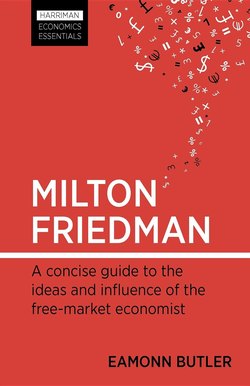Читать книгу Milton Friedman - Eamonn Butler - Страница 23
На сайте Литреса книга снята с продажи.
Widening influence
ОглавлениеFriedman found a wider audience with the regular column he wrote in the popular news magazine Newsweek between 1966 and 1984. He produced around 300 of these articles, using them to challenge the economic and political orthodoxy of the day. He explained why minimum wages would hurt young blacks rather than help them; how current policy would produce inflation and recession at the same time (something that mainstream economists thought impossible); how big business talked free markets but prospered on government favours; and many other issues. These Newsweek columns made Friedman one of America’s most prominent – and most controversial – policy thinkers. Gradually, Friedman’s startlingly fresh views, and his clear and unfussy explanations, brought an understanding of economics – and in particular, of free-market economics – to a whole generation of Americans.
“There is a standard pattern. When anybody threatens an orthodox position, the first reaction is to ignore the interloper. The less said about him the better. But if he begins to win a hearing and gets annoying, the second reaction is to ridicule him, make fun of him as an extremist, a foolish fellow who has these silly ideas. After that stage passes, the next, and the most important, stage is to put on his clothes. You adopt for your own his views, and then attribute to him a caricature of those views saying, ‘He’s an extremist, one of those fellows who says only money matters – everybody knows that sort. Of course money does matter, but. . .’ ”
– Milton Friedman, The Counter-Revolution in Monetary Theory
But it was in later life that Friedman would gain the widest – indeed, worldwide – exposure for his liberal, free-market ideas. Retiring from Chicago at 65 in 1977, he and Rose moved to California, where he took up a fellowship with the Hoover Institution, a public policy research centre at Stanford University. Shortly afterwards, Robert Chitester, a public broadcaster from Pennsylvania, put to Friedman an audacious project: a multi-million-dollar documentary series in which he would present his own social, economic and political ideas.
There was no script; in each half-hour segment, Friedman merely explained his ideas off the cuff in his usual fluent and candid way, against the backdrop of world locations from America to the Far East. The series, Free to Choose (1980), became an instant hit, and was screened around the globe. The book of the same name stayed on the US best-seller lists for five weeks, selling over a million copies worldwide and earning Friedman more royalties than all of his previous works combined.
When asked how he would wish to be remembered, Friedman said he hoped that his professional insights – permanent income, the natural rate of unemployment, the restatement of the quantity theory – would still be considered useful in years to come. “The true test of any scholar’s work”, he told Chitester, “is not what his contemporaries say, but what happens to his work in the next 25 or 50 years. And the thing that I will really be proud of is if some of the work I have done is still cited in the textbooks long after I am gone.”
No doubt it will be. But Friedman will be remembered even more for taking on, almost alone, the overwhelming consensus of his times and spreading the ideas and institutions of personal and economic freedom across the greater part of the globe.
